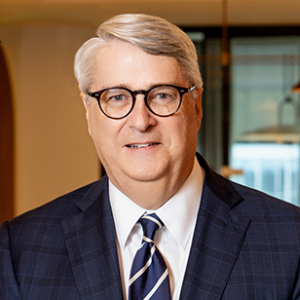President's Perspective: Generation Gaps
August 1, 2015 I Tennessee Bar Journal I William L. Harbison
This July, more than 700 law school graduates took the bar examination in Tennessee. That is down from an even larger number who took the exam in 2014. Followers of the profession have noted that law school admissions have declined, and at some schools the decline is dramatic. It is common knowledge that law school graduates are facing a tough market for legal jobs, and that fact, combined with the significant expense of law school, undoubtedly contributes to an atmosphere of uncertainty for bright students thinking about law school.
On the morning when I wrote this article, I met with a young man who is currently living and teaching in China. He is one year out of college, and he wants eventually to go to law school to work in the nonprofit area on issues of social justice. His enthusiasm is undiminished by the poor statistics for law firm jobs that may exist when he graduates, or by the fact that he will almost certainly not make as much money as lawyers have been making at big firms for the past few decades. I was struck by his earnest desire to go to law school in order to improve the world. It was a sometimes-needed jolt of idealism that can really help improve an otherwise stressful day.
As I met with this young man, it occurred to me how often I have heard older lawyers say that they would not advise their children to go to law school today. A familiar theme to some discussions among lawyers is that things are not like they used to be, and that in particular law practice is not what it used to be.
No doubt, things have changed. I am old enough to recall the use of typewriters, onion skin and real carbon paper for copies of pleadings, wills and correspondence. I also recall people saying, as I started to practice law, that things were not what they used to be. I suppose it is something that is said by every generation as it gets older. And much has been written on the differences between my generation (baby boomers) and those that have come along more recently.
But perhaps the things that have not changed are as important as the ones that have. Young people still go to law school with idealistic hopes and dreams. While these often include hopes for making a good living, they frequently also include a desire to change things for the better. I cannot think of any profession where the opportunities to do this are greater than in law. Bob Dylan reflected on his earlier career with the line “I was so much older then, I’m younger than that now.” My own interpretation of his lyric is that it is possible to stay hopeful and idealistic as one gets older.
William Butler Yeats frequently reflected on the tension between youth and old age in his poetry. He even noted that in some periods the generation gap can be turned on its head, with young people finding older ones to be too wild and unrestrained in their thinking. Here in its entirety is his short poem “On Hearing that the Students of Our New University Have Joined the Agitation Against Immoral Literature”:
“Where, where but here have Pride and Truth,
That long to give themselves for wage,
To shake their sides at wicked youth,
Restraining reckless middle age?”
Yeats’ poem, written over 100 years ago, is centered on the irony that young people might feel compelled to “restrain” people in “reckless middle age.” While the historical context of education in Ireland around the turn of the last century seems remote now, the reflection on generation gaps is still fresh. I look forward to the role of the TBA president welcoming new members of the bar to our profession this year. They bring enthusiasm, new ideas, and idealism which we can all use. Those of us who are older still have a lot of things to learn and to anticipate from our legal careers.
















